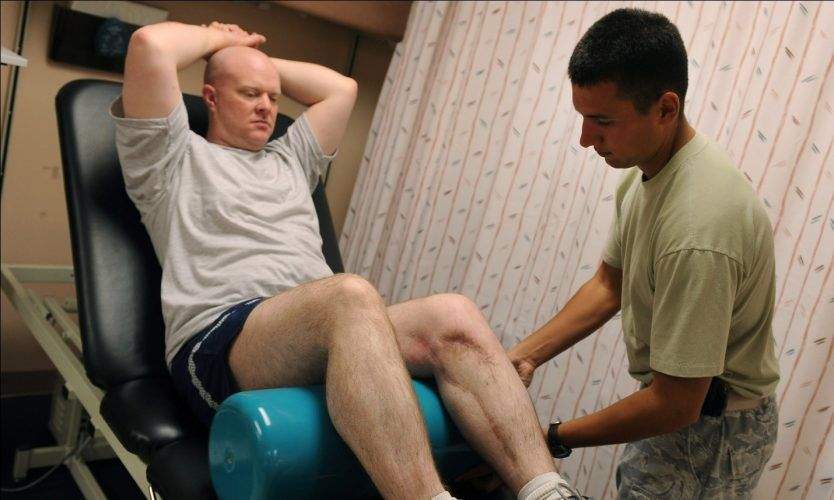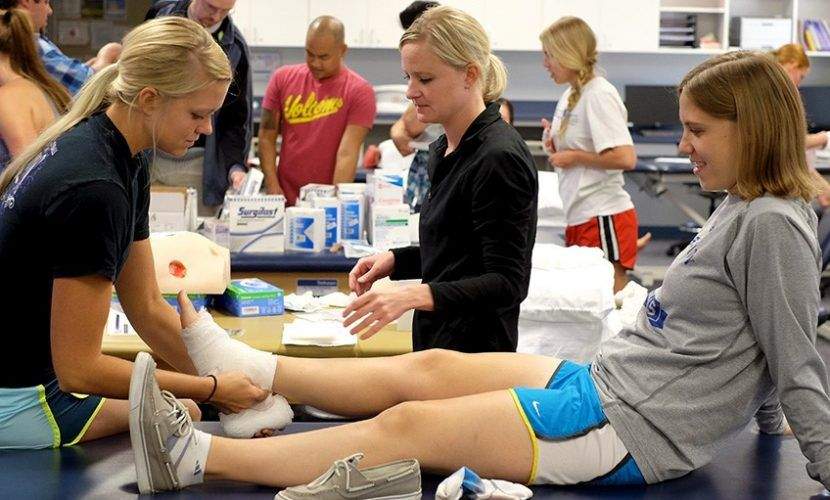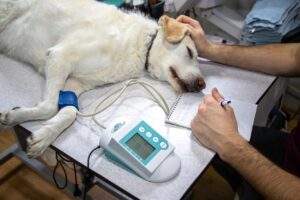The Role and Responsibilities of a Physiotherapist
Physiotherapy is one of the allied professions in healthcare that uses various types of therapies for the treatment of physical problems. The physiotherapy practitioners are known as physiotherapists and used the therapies like exercise therapy, manual therapy, electrotherapy, etc. to promote the bodily functions and mobility.
Role of a Physiotherapist

Physiotherapists play a vital role in improving the quality of patient’s life. They perform the responsibilities like the physical intervention, diagnosis, prognosis, and patient education. In addition to clinical practice, the profession also includes the research, education and consultation services.
Physiotherapists diagnose and treat the patients of all ages and physical conditions. They treat the patients who suffer from physical problems or medical condition that limit their ability to perform the regular bodily functions.
Patients who face difficulty in mobility and suffer from pain in body parts like knee pain, back pain, etc. can take the help of physiotherapists to supplement their medical treatment. Physical therapists help their patients to reduce pain, restore mobility and prevent disability. Some practitioners also run the fitness and wellness programs for people to help them to live more active and healthy lifestyles.
Physical therapists work in a variety of organisations such as healthcare agencies, hospitals, outpatient clinics, nursing homes, schools and sports agencies. They need a state license to practice physiotherapy in a particular state.
Responsibilities of Physiotherapists in various fields
Hospitals

Physiotherapists handle a lot of tasks and duties in the hospitals. The duties include organizing the physical exercise sessions and offering massage therapies for joints and muscle pain. They provide specific treatments like electrotherapy, hydrotherapy and aromatherapy to the patients.
Moreover, the physiotherapists educate the patients about, how to perform the healing exercises and movements to restore mobility. They also coordinate with the doctors and nurses to help them in the treatment of patients. Physiotherapists also collect the statistics and prepare the reports of patients to assist the physicians.
Sports Clinics
Physiotherapists offer a variety of services to sportspersons. They help the sports persons to exercise such as strength and cardio training. The sports persons are susceptible to physical injuries during the practice sessions and tournaments. They also help them to recover from injuries to restore the sports activities.
The sports physiotherapists also offer advice on diet, nutrition and supplements for sports persons. They help the players in the healing of muscle injuries, joint-related injuries and other physical injuries to improve their health and performance.
Sports teams have their designated physiotherapists to help treat the sportspersons heal from injuries faster to participate in the tournaments. Moreover, the assigned therapists know about the health and fitness levels of every person in the team which is beneficial for quick and effective treatment.
Schools

Physiotherapists play a vital role in schools to promote children health and education. They teach the children to deal with physical challenges including the disabilities and injuries. In some educational institutions, the physical therapist handles the responsibilities of a sports teacher. They educate the children about the preventive measures against injuries.
For example, school children suffer from back problems due to heavy backpacks. The therapists help students learn the correct backpack habits among children. They also teach the children about various physical exercises and therapies to promote health and recovery from injuries.
Nursing homes
The nursing homes hire physiotherapists to perform a variety of duties and responsibilities. They perform various tasks like helping the patients to perform the exercises, stretching, hands-on therapy and recover from injuries. They work and coordinate with the nurses, physicians and managers to help them manage the diagnosis and treatment.
Physiotherapists help the physicians and nurses to treat the patients within the estimated time span. They also evaluate the results of the physical therapies and recommend the required adjustments and modifications. The doctors coordinate with the therapists in acute cases to take suggestions on treatments.
Community Health Centers

Physiotherapists also play an important role working at community health centers in the treatment of patients. They help in the healing of patients in the local community health centers like physiotherapy. They also provide home visits for treatment of patients who cannot visit the hospitals or nursing homes on recommendations from physicians, and allied health care professionals.
Physical therapists work as members of state continence units in the general hospitals. The local physiotherapists working at community health centers also attend the rural hospitals and nursing homes to check the patients. Moreover, they also participate and promote the professional healthcare and safety projects.
Conclusion
The physical therapists play a crucial role in the healthcare and medical agencies. Physiotherapists help the medical practitioners in hospitals, nursing homes and community health centers to treat the patients and aid the treatment process. Moreover, they work for schools and sports agencies to educate the children, and sportspersons stay fit and recover from injuries.







